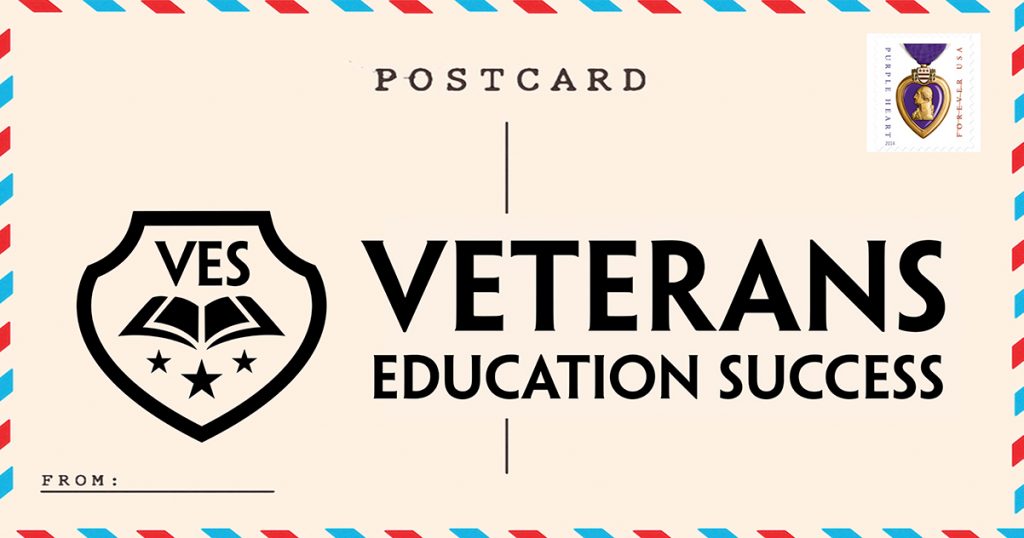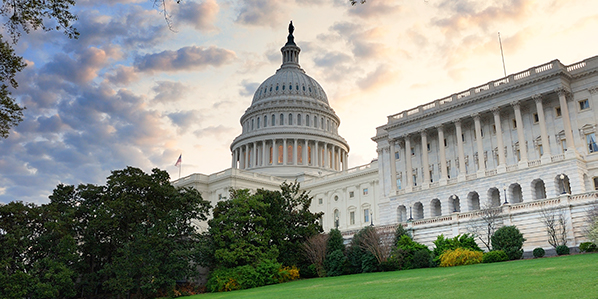We collaborate with our veteran & military allies to maximize our collective advocacy impact, offering policy recommendations to Congress and federal agencies.
OUR LETTERS TO CONGRESS
Background on the Protect the GI Bill Act: Understanding Section 1016 In 2016, a unanimous Congress enacted the Career Ready Student Veterans Act, preventing GI Bill funding to be wasted at education programs which leave [...]
Our Statement for the Record: September 30th House Subcommittee on Education and Labor Hearing on Closed School Discharge
STATEMENT FOR THE RECORD SUBCOMMITTEE HEARING ON CLOSED SCHOOL DISCHARGE SUBMITTED TO THE HIGHER EDUCATION AND WORKFORCE INVESTMENT SUBCOMMITTEE COMMITTEE ON EDUCATION AND LABOR U.S. HOUSE OF REPRESENTATIVES September 30, 2021 Chairwoman Wilson, Ranking Member [...]
Our Letter to Congress Endorsing H.R. 2668, the Consumer Protection and Recovery Act
July 14, 2021 The Honorable Nancy Pelosi, Speaker The Honorable Kevin McCarthy, Minority Leader U.S. House of Representatives Washington, D.C. 20515 RE: Call to update Federal Trade Commission’s enforcement tools under FTC Act, Section 13(b) [...]
MSO/VSO Letter Supporting the Expansion of the MLA to All Americans in the 117th Congress
May 21, 2021 The Honorable Sherrod Brown, Chairman Senate Committee on Banking SD-534 Dirksen Senate Office Committee Washington, DC 20510 The Honorable Jack Reed Senate Committee on Banking SD-534 Dirksen Senate Office Committee [...]
Our Letter to Congress Asking Them to Update FTC’s 13(b) Enforcement Tools
April 26, 2021 The Honorable Maria Cantwell, Chair The Honorable Roger Wicker, Ranking Member Committee on Commerce, Science, and Transportation U.S. Senate Washington, D.C. 20510 The Honorable Frank Pallone, Jr. Chairman The Honorable Cathy McMorris [...]
Our Letter to Congress to Overturn the OCC’s True Lender Rule
April 29, 2021 The Honorable Sherrod Brown, Chairman, U.S. Senate Committee on Banking, Housing, and Urban Affairs Room SD-534 Dirksen Senate Office Building Washington, DC 20510 The Honorable Patrick J. Toomey, Ranking Member, [...]
OUR LETTERS TO VA
Letter to VA Regarding Florida Career College
November 21, 2022 Betsy Wickham, Bureau Chief State Approving Agency Florida Department of Veterans’ Affairs Via email David Salgado, Director Veterans Education Program Texas Veterans Commission Via email Joshua Jacobs, Senior Advisor for Policy Performing [...]
Letter to VA Regarding Full Sail University
November 21, 2022 Betsy Wickham, Bureau Chief State Approving Agency Florida Department of Veterans’ Affairs Via email Joshua Jacobs, Senior Advisor for Policy Performing the Delegable Duties of the Under Secretary for Benefits Veterans Benefits [...]
Letter to VA Regarding ASA College
November 21, 2022 William Clarke, Veterans Program Manager Bureau of Veterans Education New York State Division of Veterans’ Services Via email Joshua Jacobs, Senior Advisor for Policy Performing the Delegable Duties of the Under Secretary [...]
Our Testimony to the Veterans’ Advisory Committee on Education on Protecting Veterans’ Education Benefits
November 17, 2022 U.S. Department of Veterans Affairs Veterans Benefits Administration Education Service 810 Vermont Avenue NW Washington, DC 20420 Via electronic submission to [email protected] Re: Advisory Committee on Education Meeting November 29-30, 2022 Dear [...]
OUR LETTERS TO THE EDUCATION DEPARTMENT
Veterans & Military Organizations’ Letter to the Dept. of Education re: “Low-Financial-Value” Colleges
The undersigned military and veteran organizations write to provide comments on the above-referenced Request for Information (RFI). We agree with the Department that low-financial-value programs “may cause particularly acute harm for student loan borrowers who may struggle to repay their debts after discovering too late that their postsecondary programs did not adequately prepare them for the workforce” and that “taxpayers also shoulder the costs.” We write specifically regarding the impact on student veterans and military-connected students.
Letter to NC-SARA re: Proposal to Elevate SARA’s Consumer Protection Standards
The State Authorization Reciprocity Agreement (SARA), administered by the National Council for State Authorization Reciprocity Agreements (NC-SARA), lowers barriers for schools to offer online programs in multiple states, easing the way for institutions to expand the reach of their online programs. SARA’s impact is immense - almost 6 million students were enrolled in online programs at more than 2,300 SARA participating schools in Fall 2020, including 1.6 million students enrolled in online programs based outside of their state.1 Every state except for California is a SARA member. 2 However, the agreement’s standards set an extremely low bar for consumer protection, leaving millions of online students vulnerable to abuse by unscrupulous schools.
Our Letter to the Department of Education on the Council on Occupational Education.
VES advocacy letter on behalf of students and veterans in higher education in response to the call for third-party comments announced on November 14, 2022, in the Department of Education’s Notice Accrediting Agencies Currently Undergoing Review for the Purpose of Recognition by the U.S. Secretary of Education. 1 Our comments concern the Council on Occupational Education (“COE”) and the senior Department official’s (SDO) decision letter dated October 27, 2021, requiring COE to come into compliance with 34 C.F.R. Part 602 within 12 months and to submit a compliance report within 30 days thereafter.
Our Nomination Letter for Debbie Cochrane for Appointment to NACIQI
September 15, 2022 The Honorable Miguel Cardona, Ed.D. Secretary of Education U.S. Department of Education 400 Maryland Avenue SW Washington, DC 20202 Mr. Secretary, Responding to the Department of Education’s Federal Register notice of August [...]
OUR ADVOCACY
See how we are working to advance higher education success, protecting the integrity and promise of the GI Bill.





